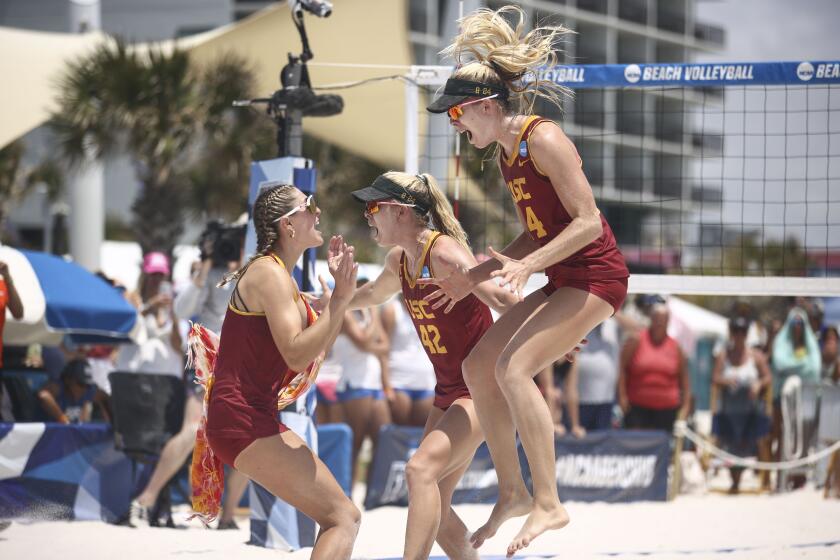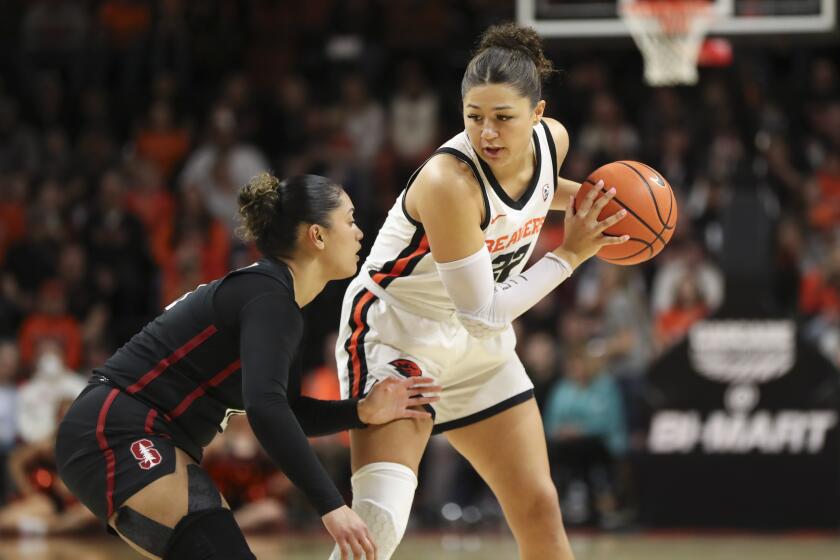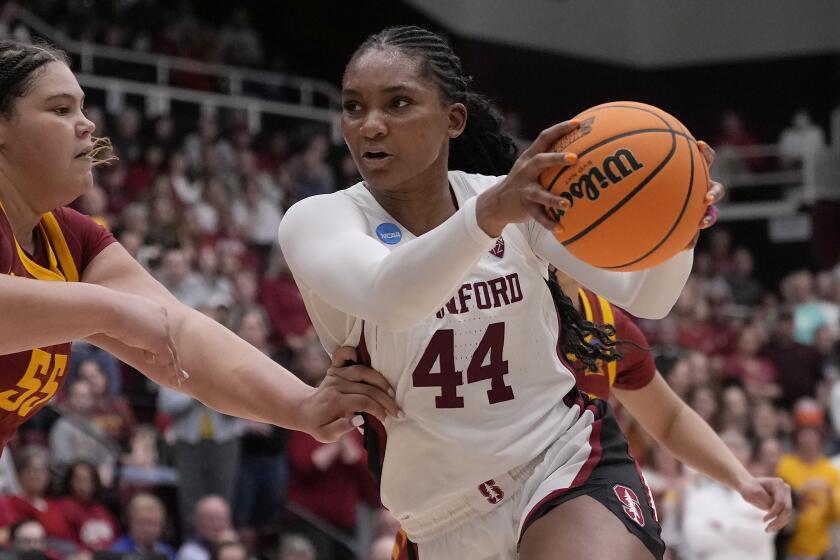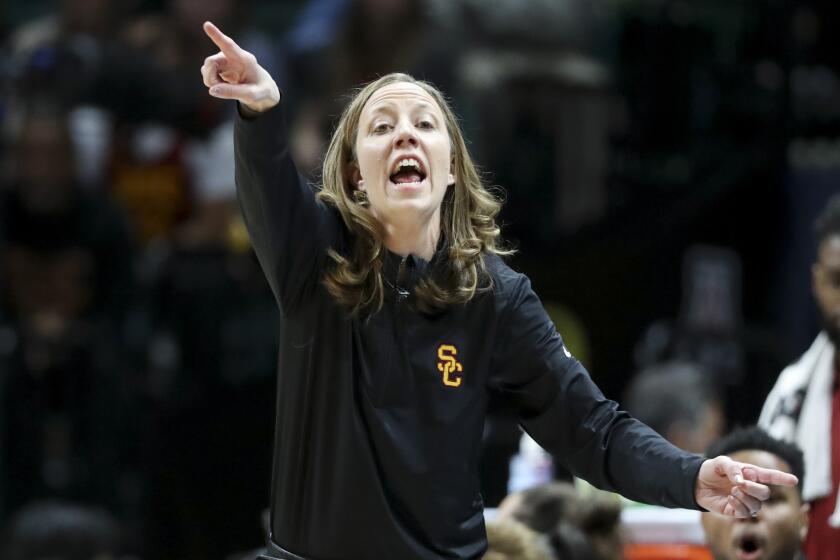Southland Focus Needs Wide-Angle Lens
A shooter and an archer hit their golden marks.
A sliver of a swimmer named Amanda Beard won two individual silvers.
A surgeon saved a softball team.
And on the field where Herschel Walker once rambled, the best women’s soccer team in the world won gold while 76,481 screamed their approval.
Southern California’s mark on the Atlanta Games was hardly the usual. Volleyball foundered--at least on the indoor court, where neither the U.S. men nor women won a medal for the first time since the 1980 boycott. Swimming belonged to other states and nations. Water polo sank after Chris Humbert was thrown out for splashing a referee. A baseball team led by USC’s Jacque Jones and Cal State Fullerton’s Mark Kotsay sought to challenge Cuba--but never made it to the gold-medal game. And in the ring, boxer Fernando Vargas said he was tired of being compared to Oscar De La Hoya--and then made sure no one would bother by losing early and crying foul. Cyclist Connie Paraskevin-Young, the five-time Olympian from Corona del Mar, failed to reach the final.
Sure, suddenly-he’s-a-local Shaquille O’Neal helped the men’s basketball team to its overhyped gold, and USC’s Lisa Leslie didn’t have to repeat her 101-point half from Morningside High days for the women to win.
But where Southern California was concerned, these Olympics belonged to people such as 17-year-old shooter Kim Rhode of El Monte, a surprise gold-medal winner. And Justin Huish, 21, an archer who practiced by shooting at a target 70 meters away through the open door of his Simi Valley garage, won two golds, in individual and team events.
Softball wasn’t even an Olympic sport until these Games, but now part of the lore will be Dot Richardson, back on the job as a third-year resident at USC Medical Center a day after winning the first softball gold medal.
Richardson grabbed the attention with her game-winning homer, but the softball team was a virtual Southern California all-star team. There was Lisa Fernandez, the onetime UCLA star who’s such a gamer she sometimes sounds like a big league manager. And Michele Granger, the pitcher from Placentia who fought through snowdrifts to practice in Alaskan church classrooms. And Gillian Box, Sheila Cornell, Leah O’Brien and Julie Smith besides.
Another first-time sport, women’s soccer, was played before the biggest crowds ever to see a women’s sporting event in this country. There was Julie Foudy, so recently a kid from Mission Viejo, now married and on her way to medical school. And Joy Fawcett, a mom and the UCLA coach--and not about to miss the first women’s soccer tournament in the Olympics.
These Olympics were also about beach volleyball, with Karch Kiraly and Kent Steffes taking the gold. In tennis, Lindsay Davenport, a Newport Beach resident who grew up in Murrieta, was the last woman standing.
One thing that didn’t change was the array of Southland stars in track and field. Gail Devers was back again, winning the 100 meters and adding another gold in the 400-meter relay.
John Godina from UCLA won silver in the shotput. USC graduate Inger Miller finished fourth in the 200 and then was part of the gold-medal winning 400-meter relay, completing the family medal collection her father started with a silver and a bronze.
And as the Games ended, goodbyes began.
That was a true farewell for Jackie Joyner-Kersee, who bravely won a bronze in the long jump despite the injury that made her withdraw from the heptathlon. It was probably goodbye for Mike Powell who, hampered by an injury, failed to place in the long jump.
The longest farewell, though, belonged to Janet Evans, who wasn’t able to add another medal to her collection of four golds and a silver. It began with a torch run in the opening ceremonies, was interrupted by a brush with controversy over Irish swimmer Michelle Smith’s sudden improvement, then punctuated by that surreal interview as the Centennial Park bomb exploded in the background.
Others, though, will be back. Maybe Beard’s two silvers will turn into an individual gold, to go with the one she already has in a relay. Or maybe her body will lose the buoyancy of her youth, and, like Evans, she will swim in other Olympics but never be quite the same.
Or perhaps, by 2000, Beard’s 14-year-old face will have caught up with that smile.
Go beyond the scoreboard
Get the latest on L.A.'s teams in the daily Sports Report newsletter.
You may occasionally receive promotional content from the Los Angeles Times.



